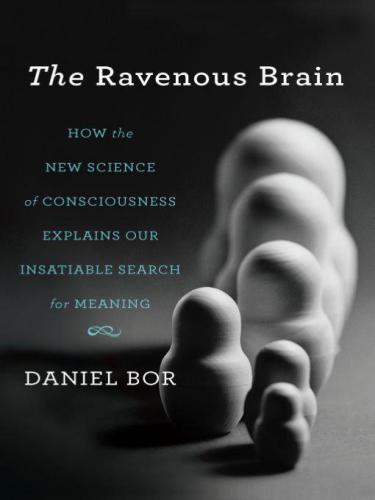
The Ravenous Brain
How the New Science of Consciousness Explains Our Insatiable Search for Meaning
کتاب های مرتبط
- اطلاعات
- نقد و بررسی
- دیدگاه کاربران
نقد و بررسی

June 11, 2012
Human consciousness, as described by Bor, a neuroscientist and research fellow at the University of Sussex, is an evolutionary outgrowth of the brain’s search for information and uncovering patterns in the world around us. He argues compellingly that this confers an evolutionary advantage and that “it evolved, like almost everything else in nature, in an incremental way.” He goes on to explain the mechanisms the brain uses to increase its efficacy at this task, focusing most on the concept of chunking, or finding ways to bring coherence to a large amount of data. Though others have capably presented the relationship between brain and mind, and the functions of various portions of the brain, Bor does it so effectively that the material remains fresh. He explores how our brains differ both from computer programs and from other animals (such as apes, crows, and octopi) that are also self-aware. “Perhaps what most distinguishes us humans from the rest of the animal kingdom is our ravenous desire to find structure in the information we pick up in the world.” Bor balances neuroscience with comparative biology, and philosophy with psychology while writing in a fully engaging conversational style. Agent: Peter Tallack, the Science Factory (U.K.).

June 15, 2012
From a cognitive neuroscientist, a lively look at what research is revealing about consciousness and a view of some of the ethical implications of recent findings about the brain's "ravenous appetite for wisdom." Bor (Research Fellow/Univ. of Sussex, Sackler Centre for Consciousness Science) asserts that centuries of philosophical arguments about consciousness have shed little light on the subject and that the science of consciousness, now some two decades old, has much to tell us. Descartes receives special scrutiny. After an opening chapter dismissing many philosophical debates, Bor turns to the evolutionary background of consciousness, which he describes as a certain kind of processing of information that captures useful patterns in the environment. His experience of being under general anesthesia for surgery introduces a discussion of the boundary between consciousness and unconsciousness. He distinguishes between conscious and unconscious processes, examines the psychology and neurophysiology of awareness, and explains how our brains utilize a process called chunking to organize pieces of information into meaningful groups. Bor also takes up the question of how to assess consciousness in various species of animals and in mute individuals who have suffered traumatic brain injuries, and he explores the relationship of dysfunctional consciousness in autism, schizophrenia, ADHD and other mental disorders. Finally, the author includes a cautionary note about the fragility of the human mind; in his view, adopting an attitude of skepticism and practicing meditation are beneficial. Bor keeps general readers in mind, making challenging subject matter entertaining by peppering his narrative with personal anecdotes, imaginative thought experiments and probing research studies. An enthusiastic report from the front lines of cognitive science designed to pique the interest of nonscientists.
COPYRIGHT(2012) Kirkus Reviews, ALL RIGHTS RESERVED.

























دیدگاه کاربران